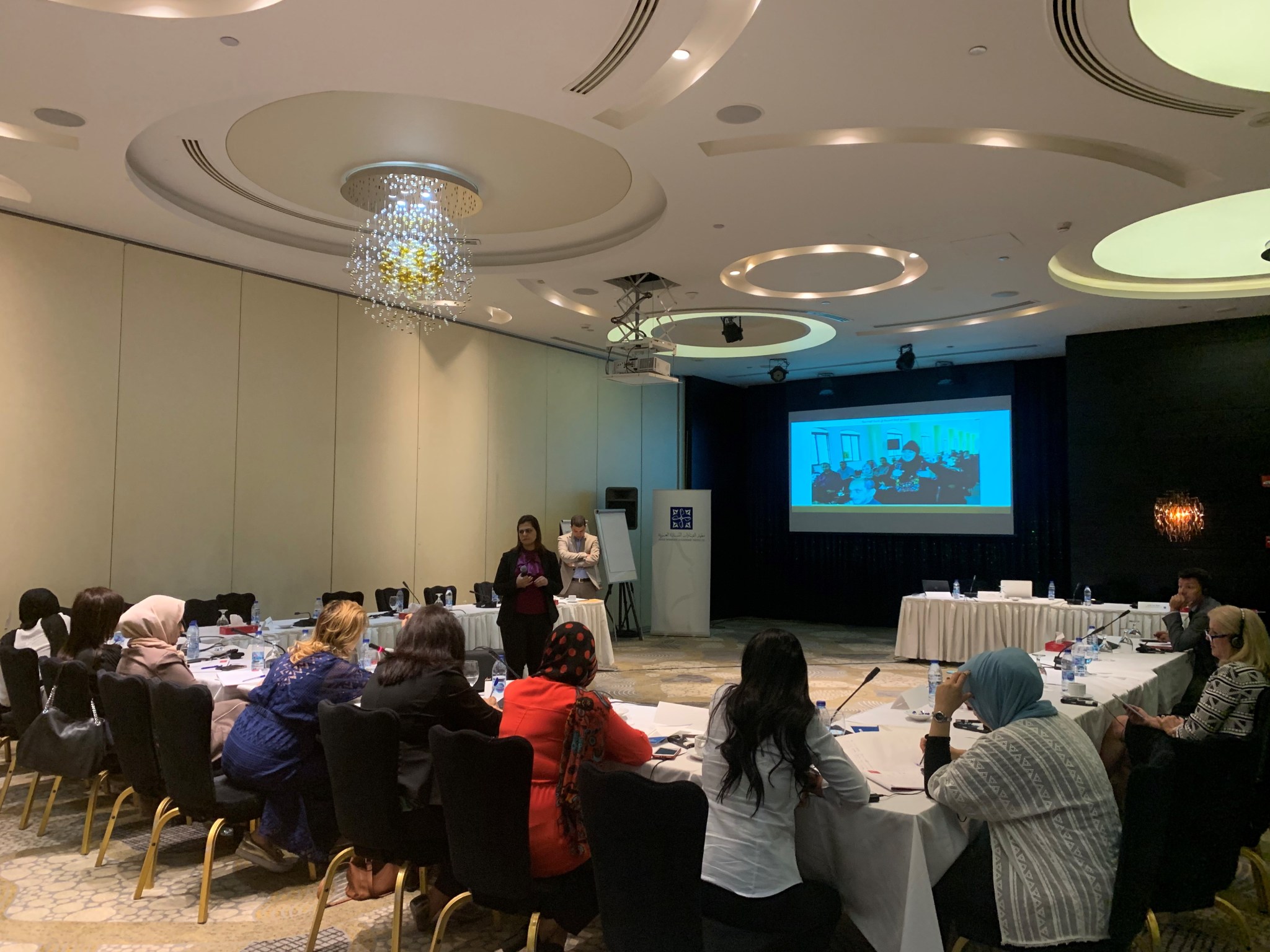Economic Recovery in the MENA Region Requires the Inclusion of Women

As countries work to rebuild their economies after the crisis of the Covid-19 pandemic, the inclusion of women proves more important than ever. Women’s economic empowerment (WEE) is necessary for the advancement of the MENA region’s economy. According to the Organization for Economic Cooperation and Development (OECD), women contribute less than one-fifth of the MENA region’s GDP, causing the region to miss out on $575 billion per year. IRI continues to support programming to boost WEE because it recognizes that the inclusion of women is necessary for both democratic progress and a prospering economy.
To advance the economic empowerment of women in the MENA region, IRI’s Women’s Democracy Network (WDN) implemented the Arab Women’s Leadership Institute (AWLI) Policy Roundtables program. WDN convened women leaders from across the region to conduct an 8-week workshop to promote gender-responsive economic policies in the MENA region. WDN member Rawan Yaghi, Founder of USPEaK and Policy Roundtables trainer, utilized WDN’s Gender-Responsive Policymaking Toolkit (GRPT) to guide participants through the policymaking process. The women leaders worked in country teams to apply lessons learned to develop a gender-responsive policy that addresses barriers to WEE in their country.
WDN worked with the participants to design their own policy solutions, thus supporting women to become agents of change in their communities. Utilizing the GRPT curriculum, participants identified barriers to WEE in the region and developed gender-responsive policy recommendations. The participants discussed a lack of awareness of laws, regulations, and opportunities related to WEE as a barrier, and proposed advocacy campaigns and a series of workshops to increase women rural workers’ knowledge of these policies. A second policy solution the participants developed was the creation of guidance centers to empower women with knowledge about these laws, regulations, and economic opportunities.
The participants noted that because many of the economic policies in place in the MENA region are not gender-responsive, they have disproportionate impacts women. To address the consequences of policies without a gender focus, the participants designed two state-level laws – one that ensures rural working women receive retirement and health coverage and one that simplifies the path for financing small and medium-sized enterprises (SME’s). Following the AWLI Policy Roundtables program, WDN plans to support these women in the implementation of their policy solutions.
The AWLI Policy Roundtables initiative engaged with these women leaders on the importance of WEE and enhanced their skills to become involved in the policymaking process in their communities. By bringing together women from various MENA countries, WDN fostered cross-regional engagement to build relationships and facilitate knowledge sharing. WDN provided the space for women to collaborate and create their own solutions to the problems women face daily in their countries.
The inclusion of women in the policymaking process is crucial, as women have a key role to play in the economic recovery of the MENA region during this global health crisis. The AWLI Policy Roundtables program provided support to women who seek more influence over the decision-making process of policies for WEE. The pandemic exposed preexisting faults in economic structures, including inequalities between men and women resulting from institutional and social barriers to WEE. Post-pandemic recovery provides an opportunity to untap $575 billion by economically empowering women. Only then can the MENA region reach its full potential.
Top